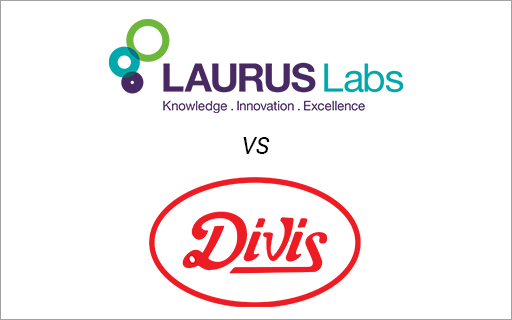- Home
- Outlook Arena
- How AI Will Impact the Indian Pharmaceutical Industry. Everything You Need to Know
How AI Will Impact the Indian Pharmaceutical Industry. Everything You Need to Know

As the Indian pharmaceutical industry stands at the crossroads of tradition and technology, AI emerges as a transformative force poised to revolutionise drug discovery, development, and patient care.
Imagine algorithms sifting through mountains of molecular data, predicting drug interactions, and customising treatments with unparalleled precision.
While the use of AI is still in early stages in the Indian pharmaceutical industry, it is only a matter of time be it will be used extensively.
With the inclusion of AI, the industry could see an improvement in efficiency, reduction in costs, and better quality of products and services.
Here are some of the areas where, we at Equitymaster, believe that AI could bring significant growth.
#1 Drug Discovery and Development
AI's predictive algorithms can sift through colossal datasets, identifying potential drug candidates and simulating their behaviour.
By significantly expediting the screening process, AI reduces both the time and resources required for drug development.
This transformative approach holds the potential to revolutionise the industry's efficiency and effectiveness in bringing novel drugs to market.
This will ultimately benefit patients with more rapid access to life-saving treatments.
#2 Personalised Medicine
AI's ability to process and analyse individual patient data allows for the customisation of treatment plans.
By considering genetic variations, lifestyle factors, and medical history, AI tailors therapies to maximise effectiveness and minimise side effects.
This marks a paradigm shift towards patient-centric care, where treatments are precisely calibrated to each individual's unique physiological makeup.
The potential impact on patient outcomes and quality of life is profound, heralding a new era in healthcare delivery.
#3 Clinical Trials Optimisation
AI's analytical capabilities play a pivotal role in revolutionising clinical trials.
By identifying suitable candidates based on diverse criteria, predicting patient responses, and streamlining the recruitment process, AI significantly accelerates the trial phase.
This leads to faster, more efficient trials with larger and more representative participant populations.
Ultimately, it expedites the translation of promising treatments from the lab to real-world clinical settings, benefiting patients and the pharmaceutical industry alike.
#4 Predictive Analytics for Patient Outcomes
AI's ability to process vast amounts of patient data enables the prediction of disease progression, treatment response, and potential complications.
By harnessing these insights, healthcare providers can proactively adjust treatment plans, improving patient outcomes and reducing the likelihood of adverse events.
This data-driven approach represents a monumental advancement in patient care, enhancing the precision and effectiveness of medical interventions.
#5 Supply Chain and Operations Optimisation
AI's analytical power extends to optimising the pharmaceutical supply chain.
By forecasting demand, automating inventory management, and streamlining production schedules, AI minimises waste, reduces costs, and ensures timely delivery of pharmaceutical products.
This efficiency not only improves the bottom line for pharmaceutical companies but also ensures a consistent and reliable supply of medications for patients.
#6 Regulatory Compliance and Quality Assurance
AI-driven systems can meticulously monitor and analyze processes to ensure adherence to regulatory standards and product quality.
By automating compliance checks and conducting real-time quality assessments, AI mitigates the risk of non-compliance and costly recalls.
This not only safeguards patient safety but also upholds the reputation and credibility of pharmaceutical companies in a highly regulated industry.
#7 Customer Engagement and Experience
AI-driven chatbots and virtual assistants revolutionize customer support in the pharmaceutical industry.
These intelligent systems provide instant responses to customer inquiries, offer information about medications, and facilitate seamless communication between patients and healthcare providers.
By enhancing accessibility and providing timely, accurate information, AI-driven customer engagement significantly improves the overall experience for patients, ensuring they have the support and resources they need.
#8 Post-Market Surveillance and Pharmacovigilance
AI's capacity to analyse real-world data enables continuous monitoring for potential safety concerns or adverse reactions associated with pharmaceutical products post-market release.
By detecting signals of adverse events early, AI enhances pharmacovigilance efforts, allowing for timely interventions and ensuring patient safety.
This proactive approach is essential for maintaining trust in the safety and efficacy of pharmaceutical products in the market.
#9 Drug Repurposing
AI's analytical capabilities enable the exploration of existing drugs for new therapeutic applications.
By analysing their molecular structures and mechanisms of action, AI can identify potential candidates for repurposing in the treatment of different conditions.
This approach accelerates the development of new treatments while leveraging the wealth of knowledge and research invested in existing pharmaceutical compounds.
Challenges Impeding adoption of AI
The adoption of Artificial Intelligence (AI) in the Indian pharmaceutical industry is poised to revolutionise drug discovery, development, and patient care.
However, it also raises many concerns that need to be addressed. Here are some of the challenges we believe that the industry may face.
#1 Data Quality and Availability
The limited availability of comprehensive, standardized healthcare data in India poses a significant challenge.
This scarcity hampers the ability of AI models to make accurate predictions and generate robust insights.
The industry must focus on data quality enhancement and aggregation strategies to overcome this hurdle.
#2 Regulatory Compliance
Stringent regulations govern drug development in India, demanding meticulous planning for AI integration. Ensuring that AI applications align with safety and efficacy standards is paramount.
This involves navigating complex regulatory frameworks, which requires a thorough understanding of both AI technology and pharmaceutical compliance.
#3 Ethical and Privacy Concerns
Safeguarding patient data while leveraging AI for personalised healthcare is a multifaceted challenge.
Striking the right balance between innovation and protecting individual privacy requires meticulous attention to legal and ethical standards.
Implementing stringent data anonymization techniques and encryption protocols can help address these concerns.
#4 Lack of Skilled Workforce
The scarcity of professionals with expertise in machine learning, data science, and pharmaceutical domain knowledge limits the industry's capacity to implement and optimise AI solutions effectively.
Investment in training programs and collaboration with academic institutions can help bridge this skills gap.
#5 Cost of Implementation
The substantial investment required for AI infrastructure, software, and training can be prohibitive.
This is particularly challenging for smaller pharmaceutical companies or startups with limited financial resources.
Exploring cost-effective solutions, cloud-based platforms, and open-source AI tools can help mitigate this challenge.
#6 Bias and Fairness in Algorithms
Addressing biases in AI models is crucial to ensure equitable healthcare outcomes.
Rigorous testing, ongoing monitoring, and employing techniques like adversarial training can help identify and rectify potential disparities in treatment recommendations and outcomes.
#7 Clinical Validation and Testing
Proving the efficacy and safety of AI-driven solutions in clinical settings requires rigorous testing protocols.
Comprehensive clinical trials and real-world evidence generation are vital for demonstrating the real-world impact of AI applications in healthcare.
#8 Scalability and Customisation
Developing AI solutions that can scale to accommodate diverse patient populations and be customized to individual healthcare needs is technically demanding.
Robust infrastructure and algorithms capable of handling large volumes of data are essential. Modular and scalable AI solutions can also be deployed to meet evolving demands.
#9 Intellectual Property and Patent Issues
The emergence of AI-generated inventions raises complex intellectual property questions. Legal frameworks must evolve to accommodate innovations driven by AI technologies.
This includes addressing questions of ownership, inventorship, and patentability in the context of AI-generated inventions.
Consulting legal experts with expertise in AI and intellectual property law is essential for navigating this challenge.
Indian Pharmaceutical Companies Leading the way with Early AI Adoption
Now that you know about both the opportunities and challenges that AI poses in the pharmaceutical industry, let's look at the Indian companies that are at the forefront of this revolution.
Here are the top three...
#1 Sun Pharmaceuticals
Sun Pharma has adopted a range of technologies, including AI and ML, to improve drug discovery, reduce time-to-market, and optimise clinical trials.
The company has also backed AIRA Matrix and is taking a shot at AI-led pharma research and development [R&D].
The company provides artificial intelligence-based solutions for life sciences applications.
It has developed deep learning-based products and services to help pharmaceutical companies expedite the discovery and development of new drug molecules.
This is done by reducing risks, costs, and time of at least a couple of key phases in drug development, drug discovery and preclinical trials.
With 17 papers already published, AIRA Matrix has been selected by the GE Edison accelerator.
Besides a small grant, it gives the company an opportunity to work with professionals across various disciplines of GE Healthcare and benefit from integrating software products within GE's ecosystem.
#2 Cipla
Cipla is heavily investing on digitisation of infrastructure and processes across its manufacturing and supply chain operations.
It wants to create smart factories to cut quality defects, improve productivity, and meet environment and sustainability goals.
Production scheduling and raw material testing have been interesting use cases where the company is trying to bring automation and artificial intelligence (AI).
#3 Lupin
Lupin Digital Health (LDH), a fully owned subsidiary of Lupin Limited, a home-grown multinational pharmaceutical company, has recently launched Lyfe.
It's a ground-breaking digital therapeutics solution designed to monitor and manage Acute Coronary Syndrome (ACS) patients using advanced technologies.
Lyfe uses artificial intelligence (AI) and machine learning (ML) to provide personalised patient experiences.
It has the potential to revolutionise healthcare in India by improving outcomes, reducing rehospitalisation and making healthcare more convenient.
This platform helps cardiologists to offer better and continuous care to their ACS patients. The customers have to download the Lyfe application on their smartphones.
The Future of AI in the Indian Pharmaceutical Industry
The future of AI in the Indian pharmaceutical industry holds boundless potential for transformative advancements.
AI is poised to revolutionise drug discovery, making it faster, more precise, and cost-effective.
Algorithms can analyze vast datasets to identify promising compounds and predict their potential efficacy, expediting the development process.
This not only accelerates the availability of life-saving drugs but also reduces research costs, ultimately benefiting patients.
Moreover, AI-driven personalised medicine is set to revolutionise patient care. By analysing an individual's genetic makeup, lifestyle, and medical history, AI can tailor treatments to specific patients.
This will optimise efficacy while minimising side effects.
This represents a monumental shift towards more targeted and effective healthcare interventions.
In addition, AI's impact on clinical trials is set to be profound. Algorithms can identify suitable candidates, predict patient outcomes, and streamline the recruitment process.
This not only expedites the research phase but also ensures that trials are more diverse and representative, leading to more robust and applicable results.
However, challenges such as data privacy, regulatory compliance, and the need for a skilled workforce must be navigated.
The industry must prioritise ethical considerations and ensure that patient data is handled securely.
Overall, the integration of AI in the Indian pharmaceutical sector promises a future of unprecedented advancements in drug discovery, personalised medicine, and clinical research.
This convergence of cutting-edge technology and healthcare is poised to redefine the landscape, offering new hope and better outcomes for patients across the nation.
Conclusion
The future of AI in the Indian pharmaceutical industry is poised to be revolutionary.
With the potential to accelerate drug discovery, customise treatments, and optimide clinical trials, AI promises to usher in a new era of healthcare.
The efficiency gains and cost reductions in research and development are set to benefit both the industry and, ultimately, the patients.
However, it's crucial to acknowledge the challenges that come with this transformation. Safeguarding patient data, ensuring regulatory compliance, and cultivating a skilled workforce are paramount.
Striking a balance between innovation and ethical considerations is imperative.
As AI continues to evolve, collaboration between pharmaceutical experts, AI researchers, and regulatory authorities will be instrumental in realising its full potential.
With strategic planning and a commitment to responsible implementation, the Indian pharmaceutical industry is poised to lead the way in harnessing the power of AI for the betterment of healthcare.
This fusion of technology and medicine holds the promise of not only advancing treatments but also improving lives and shaping a healthier future for all.
List of AI Stocks in India
The details of listed AI companies can be found on the NSE and BSE website.
For a more direct and concise view of this information, you can check outour list of AI stocks.
You can also check out Equitymaster's Powerful Indian stock screener for filtering thebest AI stocks in India and the best pharmaceutical stocks in India.
And our article on theTop 5 Artificial Intelligence Stocks to Add to Your Watchlist.
If you're looking for the top unconventional AI stocks, you can check out Richa Agarwal's video on the same.
Richa is the Editor of Hidden Treasure, Equitymaster's smallcap recommendation service.
![]() A Rare Opportunity to Profit from Pharma Stocks
A Rare Opportunity to Profit from Pharma Stocks
Apr 25, 2024
This opportunity can create a lot of wealth. Keep an eye on it.
![]() Rajnish Wellness: A Backdoor Play to Profit from India's Railway Boom
Rajnish Wellness: A Backdoor Play to Profit from India's Railway Boom
Apr 11, 2024
This pharma sector penny stock is taking a giant leap in developing medical facilities at railways stations.
![]() Beyond Pharma: Top 10 Medical Equipment Stocks to Add to Your Watchlist
Beyond Pharma: Top 10 Medical Equipment Stocks to Add to Your Watchlist
Mar 11, 2024
Pharma companies won't be the only ones to benefit as the sector grows. Medical equipment stocks could also come into play.
![]() 5 Best Pharma Penny Stocks in India
5 Best Pharma Penny Stocks in India
Mar 3, 2024
India's ability to manufacture high quality and low-priced medicines presents a huge business opportunity for these pharma sector penny stocks.
![]() The 5 Most Anticipated IPOs to Watch Out in 2024
The 5 Most Anticipated IPOs to Watch Out in 2024
Jan 10, 2024
After exceptional IPO activity in 2023, will these big-ticket IPOs be a success in 2024?
![]() 5 Midcap Stocks that Could Turn into Largecaps in 2024
5 Midcap Stocks that Could Turn into Largecaps in 2024
Jan 1, 2024
These five midcap companies have what it takes to become a largecap. Take a look...
![]() 7 Rising Stocks to Watch Out as 50% Lock-in Shares Release in December 2023
7 Rising Stocks to Watch Out as 50% Lock-in Shares Release in December 2023
Dec 4, 2023
The IPO lock-in period of these seven companies ends in December 2023. Take a look...
![]() Why Sigachi Industries Share Price is Rising
Why Sigachi Industries Share Price is Rising
Nov 16, 2023
Shares of the company hit a new 52-week high after it reported Q2 results. Find out other reasons driving the rally.
![]() Top 5 Stocks to Watch Out Upon IPO Lock-in Period Expiry
Top 5 Stocks to Watch Out Upon IPO Lock-in Period Expiry
Oct 11, 2023
Lock-in period of 40 companies is set to expire in the next few months. Here are the top stocks to keep an eye on.
![]() Why Navin Fluorine Share Price is Falling
Why Navin Fluorine Share Price is Falling
Sep 29, 2023
Shares of Navin Fluorine tanked 13% today. Read on to find out why.
![]() Will Biocon Lead Indian Pharma's Rare 'Patent Cliff' Opportunity
Will Biocon Lead Indian Pharma's Rare 'Patent Cliff' Opportunity
Apr 12, 2024
The last time such a cliff occurred during 2011-15 and offered substantial upside in pharma stocks.
![]() Best Pharma Stock: Laurus Labs vs Divis Labs
Best Pharma Stock: Laurus Labs vs Divis Labs
Apr 3, 2024
The Indian pharma industry is expected to double in value by 2030, with strong demand for APIs, formulations, and contract manufacturing. These two companies have dipped their toes in high growth areas.
![]() These 5 Healthcare Stocks are the Medicine You Need
These 5 Healthcare Stocks are the Medicine You Need
Mar 5, 2024
As India's healthcare sector soars, a new breed of pioneers is emerging. Here are 5 stocks that are redefining the pharma landscape.
![]() Why Natco Pharma Share Price is Rising
Why Natco Pharma Share Price is Rising
Feb 20, 2024
Natco Pharma zooms 21% in 5 days, hits 52-week high. What's driving the rally?
![]() Why Biocon Share Price is Rising
Why Biocon Share Price is Rising
Jan 4, 2024
Biocon zooms 13% in five days, hits 52-week high. What's driving the rally?
![]() Ace Investor Ashish Kacholia's New Investment in a Multibagger Pharma Stock
Ace Investor Ashish Kacholia's New Investment in a Multibagger Pharma Stock
Dec 27, 2023
Find out why the seasoned investor turned bullish on this multibagger stock that has soared over 300% in 2023 so far.
![]() Mutual Funds Are Betting Big on These Sectors: Are You Missing Out?
Mutual Funds Are Betting Big on These Sectors: Are You Missing Out?
Dec 3, 2023
Mutual funds are playing an increasingly active role in shaping the investment landscape, making strategic bets on specific sectors that they believe hold promise for long-term growth.
![]() Why Natco Pharma Share Price is Falling
Why Natco Pharma Share Price is Falling
Nov 2, 2023
Going by the management's commentary, Natco Pharma is expecting to clock over Rs 10 bn in annual profit in FY24.
![]() Why Glenmark Pharma Share Price is Rising
Why Glenmark Pharma Share Price is Rising
Oct 3, 2023
Glenmark Pharma shares surge 10% in a day. What's driving the rally?
![]() Cipla Promoter Stake Sale: Billions of Dollars in Play
Cipla Promoter Stake Sale: Billions of Dollars in Play
Sep 11, 2023
Pharmaceutical giant Cipla is reportedly exploring a stake sale and contenders are cropping up in an intense competition.



















